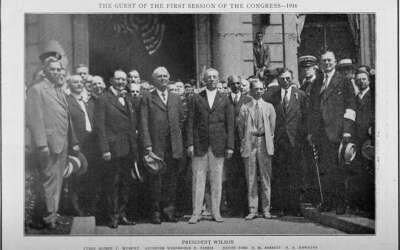The Difference Between Transparency and Honesty in Sales
Quick, deep thoughts with…me. I know, super cheesy. But here goes anyway…
In the sales world, individuals often conflate the words “transparency” and “honesty”, and I believe there is a significant difference between being honest and being transparent in sales, as well as in life.
- Being honest means telling the truth when asked, while being transparent means volunteering the truth even when not asked.
- Being honest is reactive. Being transparent is proactive.
- Being honest typically requires a prompt, whereas being transparent involves intention.
- Being honest is expected, so it inherently has less risk. Being transparent can mean being vulnerable or exposing imperfections, which feels more risky.
- Being honest maintains trust. Being transparent accelerates trust.
—–
If I know something that may impact a relationship, in business or personally, I can’t sleep unless I share it. We’ve known this for hundreds of years. Consider this quote from 1898.
“If the goods possess a defect it is better to point out that defect, even if the customer does not notice it otherwise. By impressing the customer with the fact that the salesman is perfectly honest with her, she at once gains confidence in his judgment, and will be much more apt to follow his advice or make purchases freely.” – The Furniture Journal, September 1898.
The quote says “perfectly honest”, but let’s consider this question. If you know a product you are selling has a defect, the customer does not ask, and you do not share, have you lied? Many would say “no”. The question wasn’t asked, so the salesperson never lied. They were “honest”. However, that’s not “transparent”, right?
The truth always finds its way to the light. Being transparent is in your control. Selling and life are so much easier when your cards are always face up. It builds trust. It accelerates decision-making. It helps you to qualify IN the deals you should be able to win better, and qualify OUT the deals you are likely going to lose anyway, just faster. Gain control over your most valuable asset, which is your time. Win more often. Differentiate in the way you sell.
“Morally, the sin of omission is as bad as the sin of commission, and covering up a flaw, or varnishing over, has the same effect as direct misrepresentation.” – Nathaniel C. Fowler, Jr., How to Sell, 1915

My name is Todd Caponi, CSP® I’m a sales keynote speaker who also teaches revenue organizations how to leverage transparency and decision science to maximize their revenue capacity. It’s what I do…teach sellers, their leaders, well…entire revenue organizations how we as human beings make decisions, then how to use that knowledge for good (not evil) in their messaging (informal and formal), negotiations, and revenue leadership. I wrote a book Book Authority had listed as the 6th best sales book of all time (𝘛𝘩𝘦 𝘛𝘳𝘢𝘯𝘴𝘱𝘢𝘳𝘦𝘯𝘤𝘺 𝘚𝘢𝘭𝘦), and a second award-winning book (𝘛𝘩𝘦 𝘛𝘳𝘢𝘯𝘴𝘱𝘢𝘳𝘦𝘯𝘵 𝘚𝘢𝘭𝘦𝘴 𝘓𝘦𝘢𝘥𝘦𝘳).

Reach out if you want to discuss The Transparency Sale sales methodology, or really…anything else (sales kickoffs, workshops, keynotes, the economy, history, etc.)! Email info@toddcaponi.com or call 847-999-0420.
Sign up for the newsletter for more of my nonsense in your inbox every other week, with some sales history sprinkled on top…Sign Up – The Transparent Newsletter





0 Comments